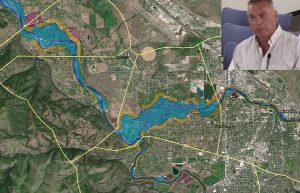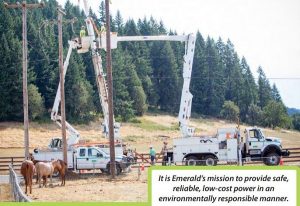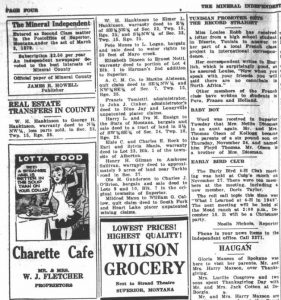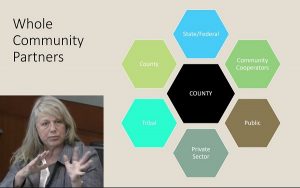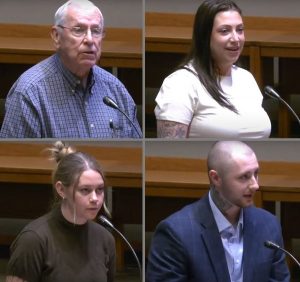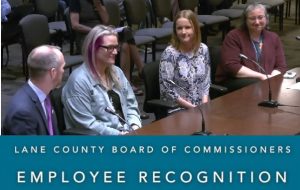Let’s use the 1858 format for the 2008 Montana debate
4 min read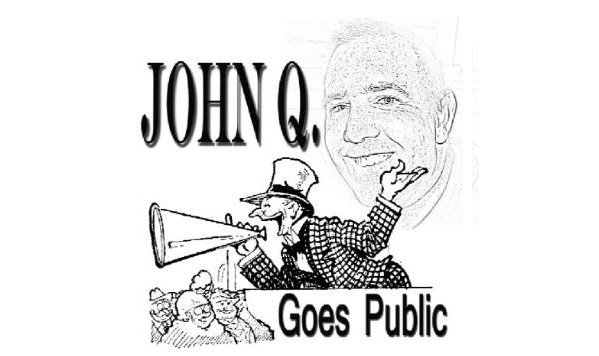
by John Q. Murray
Just in case this doesn’t get decided in Ohio and Texas next week, the Clark Fork Chronicle has officially invited the Democratic presidential candidates to a debate.
Yep, I sent the email a couple weeks ago, inviting Hillary Clinton and Barack Obama to Montana in mid-May to settle this race for once and for all. As the official master of ceremonies, I will insist on using the same format as that famous series of debates that took place exactly 150 years ago.
Back in 1858, two U.S. Senate candidates in Illinois agreed to meet seven times to debate what was then (as John McCain might call it) the transcendental issue of their lifetimes. Former Whig Abraham Lincoln, representing the fledgling Republican Party, met the incumbent Democrat Sen. Stephen A. Douglas in a series of debates on slavery that are remembered to this day.
The Lincoln-Douglas debates were held in a much different world. In the America of 150 years ago, back before the automobile, these political rallies were all-day events.
People traveled for miles to attend and the debates took on the atmosphere of a county fair.
There were no radios or televisions—heck, newspapers hadn’t even invented what we know today as reporters.
A century and a half in the past, there was no summary lede or coverage of the election as a horse race. The newspapers simply reprinted the complete text of the candidates’ speeches as recorded by stenographers.
The Democratic newspapers tidied up the remarks by Douglas, but left Lincoln’s typos and incomplete sentences. Of course, the Republican papers did the same thing for their man, smoothing Lincoln’s argument and adding punctuation for the reader, while the statements by Douglas were left riddled with random errors.
Perhaps because there were fewer distractions, or perhaps due to the immense importance of the topic, Americans had a much greater appetite for political discourse back in 1858. Each candidate spoke for an hour and a half. The first candidate spoke for an hour, the second for 90 minutes, and the first candidate returned for a 30-minute closing statement.
Of course, they didn’t speak the entire time because they were frequently interrupted by the cheers and jeers of the hyperpartisan crowds. From late August through mid-October, they met in the Illinois cities of Ottawa, Freeport, Jonesboro, Charleston, Galesburg, Quincy, and Alton.
This debate format let the candidates deliver their stump speeches to the crowd, while also offering an opportunity to challenge the opponent, or to respond to the opponent’s charges.
Lincoln took full advantage of the opening.
His Springfield law partner, Billy Herndon, later said that during those debates Lincoln committed the political murder of Douglas. Lincoln posed a question that doomed Douglas no matter how he answered.
“May I say again that Mr. Lincoln was a shrewd man, a long-headed man, a wise man, full of policies?” Herndon told an interviewer years later. “Mr. Lincoln knew that Senator Douglas was in his way in the North, and so he, at Freeport, determined to kill him—politically. He put a question—and that, too, against his friends’ advice and importunities—to Senator Douglas, which he knew the Senator must answer one way or the other, and he further knew that to answer the question either way was death to Douglas—death in the North if he answered one way, and death in the South if another. It was cold, well-calculated death either way. Douglas answered and of that answer he died.”
The question: How did Douglas resolve popular sovereignty—letting the residents of a territory decide whether to be free or slave—with the Supreme Court’s Dred Scott decision, which ruled that the federal government had no authority to exclude slavery. Douglas chose popular sovereignty and lost the South.
“…In my opinion the people of a Territory can, by lawful means, exclude slavery from their limits prior to the formation of a State constitution,” Douglas answered in the second debate, outlining what would become known as the Freeport Doctrine. “It matters not what way the Supreme Court may hereafter decide as to the abstract question whether slavery may or may not go into a Territory under the Constitution, the people have the lawful means to introduce it or exclude it as they please, for the reason that slavery cannot exist a day or an hour anywhere, unless it is supported by local police regulations. Those police regulations can only be established by the local legislature; and if the people are opposed to slavery, they will elect representatives to that body who will by unfriendly legislation effectually prevent the introduction of it into their midst. If, on the contrary, they are for it, their legislation will favor its extension. Hence, no matter what the decision of the Supreme Court may be on that abstract question, still the right of the people to make a Slave Territory or a Free Territory is perfect and complete under the Nebraska bill. I hope Mr. Lincoln deems my answer satisfactory on that point.”
Yes, he did.
Douglas narrowly won that Senate race, but two years later Lincoln would defeat him for the presidency.
If the June 3 Montana presidential primary will indeed determine the 2008 nomination, let’s employ the same format that decided those earlier races. Let’s use a format that will give our remaining two candidates the opportunity to commit, as Herndon called it, cold and calculated political murder.
In recognition of our shorter national attention span, I suggest reducing the original speaking times in half, to a total of 45 minutes for each candidate. The first candidate will speak for 30 minutes, the second candidate 45 minutes, and the first candidate will have a 15-minute rejoinder.
Sound good to you, Hill? Barry? Just have your people contact my people. Ah, actually, well, that would be me. Meet me in Montana.
